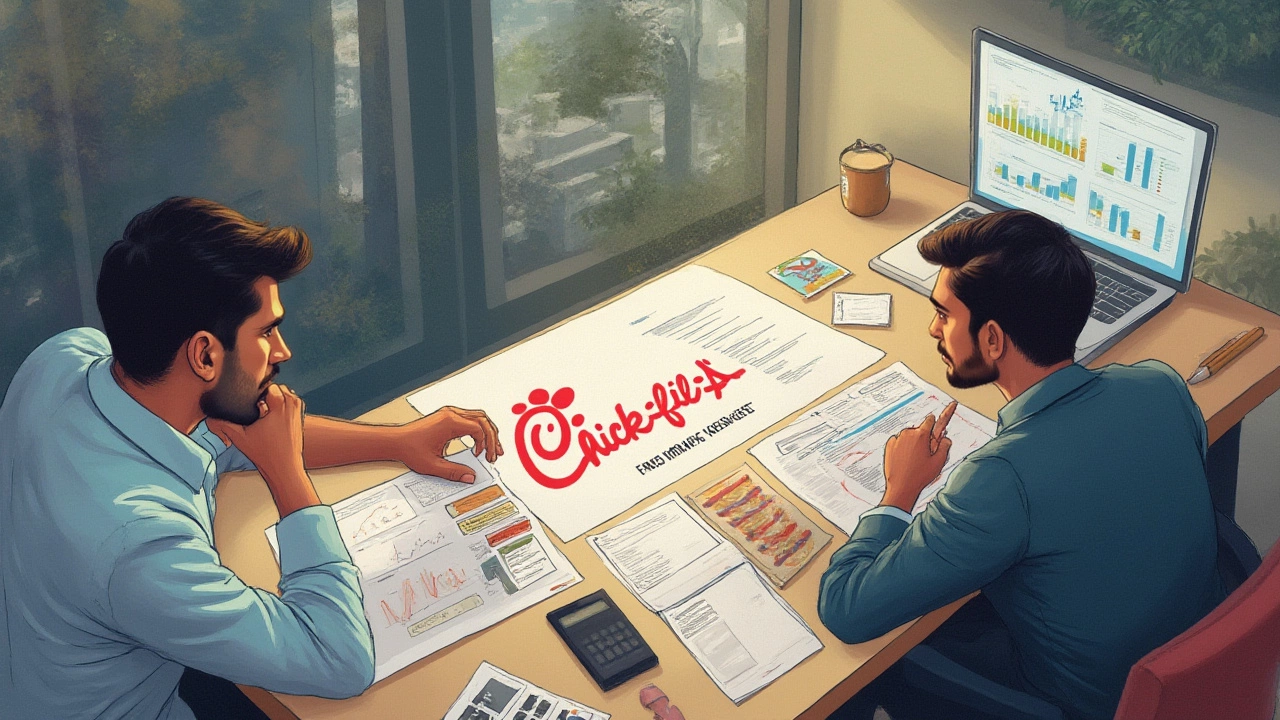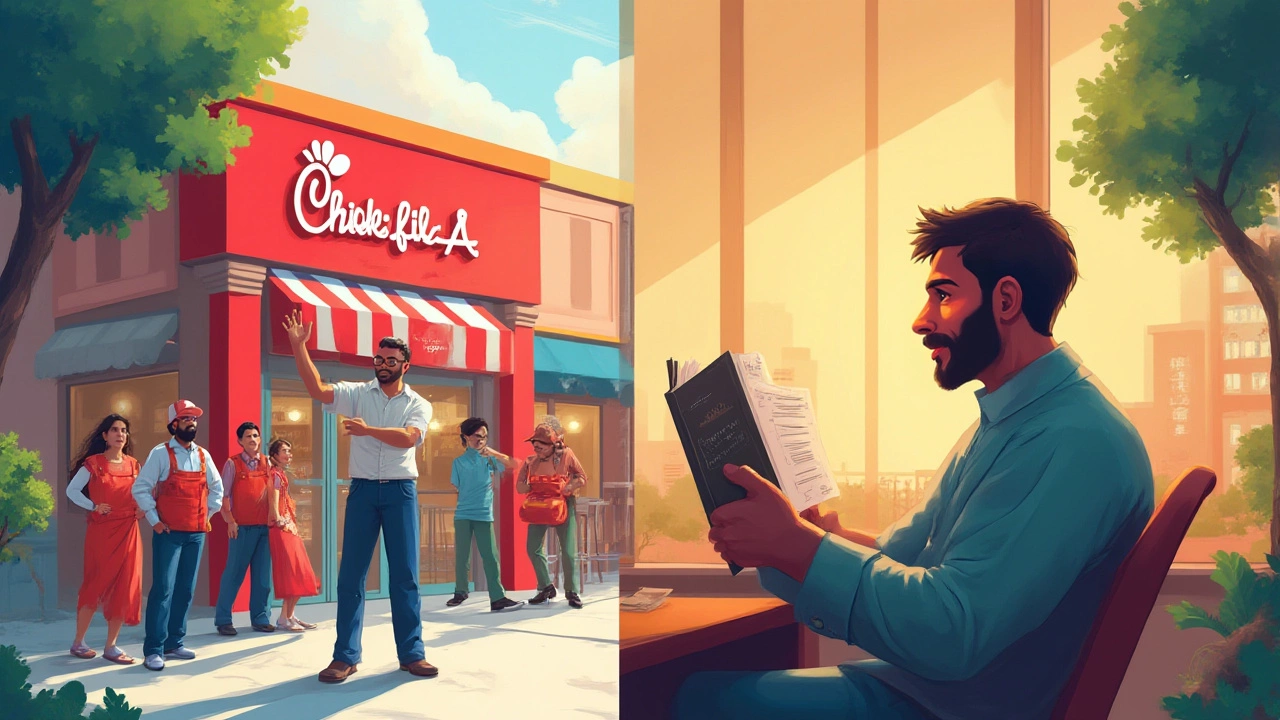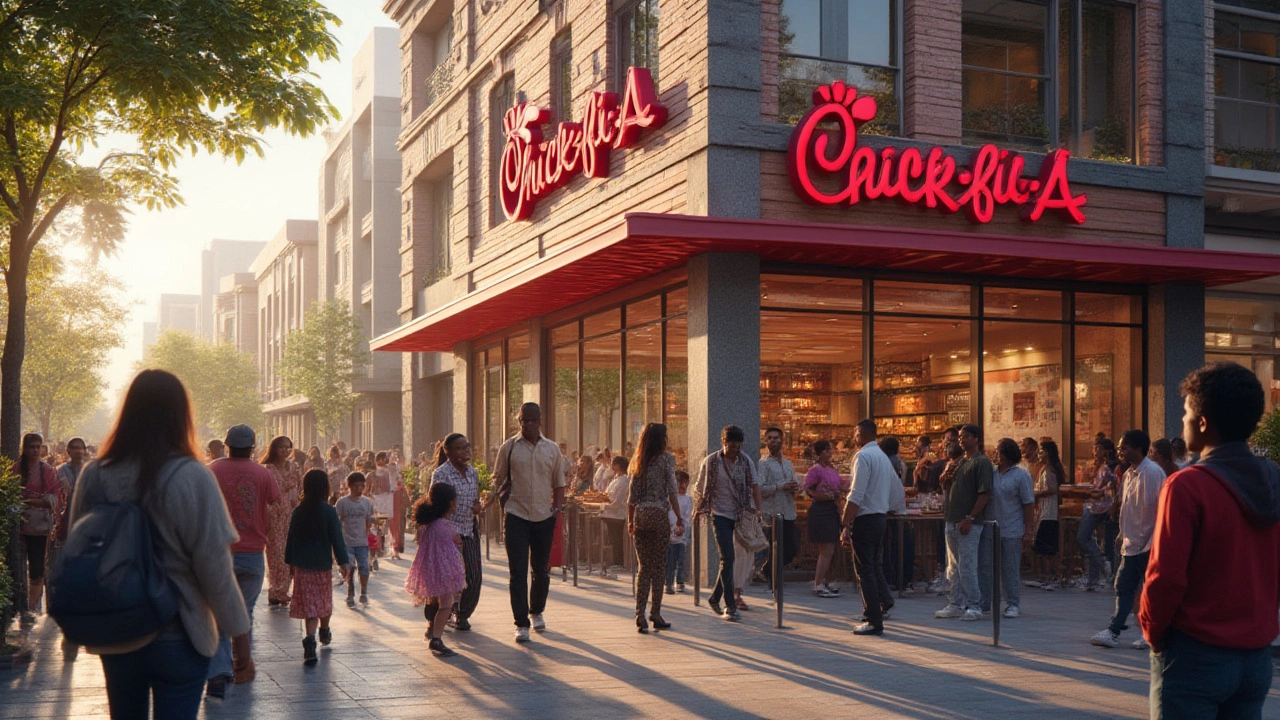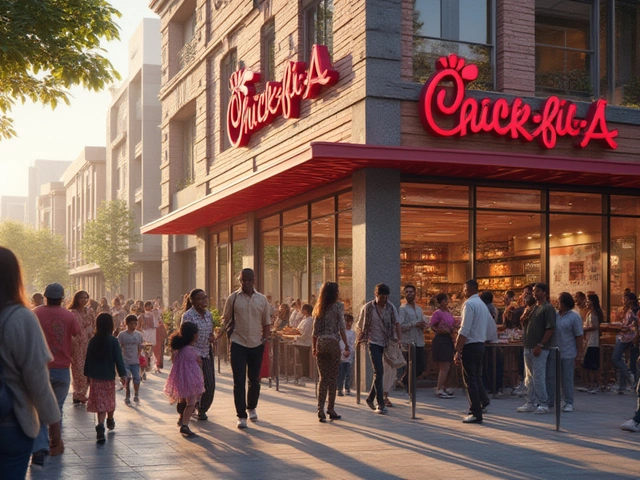If someone told you that you could own a piece of one of America’s most beloved fast-food chains for the cost of a used car, you’d probably raise an eyebrow. Most franchise giants ask for six-figure commitments just to get your foot in the door. But Chick-fil-A plays by its own rules, and those rules have turned the world of franchising on its head. Their approach is so different, people sometimes suspect there’s a catch. Spoiler: there is, but not the one you expect. Let’s get into exactly what it costs to open a Chick-fil-A, why that number is wildly misleading, and what really goes on behind those famous red awnings.
How Much Does a Chick-fil-A Franchise Really Cost?
First things first: Chick-fil-A’s official franchise fee is $10,000. Yes, that’s all. Ten grand. Compare this to McDonald’s, where the entry ticket tops $1,000,000 after you factor in development, equipment, and the franchise fee. On the surface, Chick-fil-A looks like a dream come true for budget-budding entrepreneurs.
But here’s where it gets spicy. Chick-fil-A doesn’t just charge a lower fee—they also pay for, own, and retain control over basically everything: the land, building, and equipment. You’re not buying a business; you’re paying for a shot at managing one. The company even selects the site, builds the restaurant, and lets you run day-to-day operations. On paper, this Chick-fil-A franchise cost seems too good to be true. The catch? It’s not yours. You don’t own the restaurant’s real estate, or even much in the way of business equity.
Operating costs and required liquid assets are surprisingly manageable. Chick-fil-A requires operators to have no minimum net worth, and there’s no ask for deep pockets upfront. For comparison, franchises like Subway or Dunkin’ set the bar higher with franchisees expected to cough up far more liquidity, along with a heavy net worth to guarantee you don’t flake when the going gets tough.
So why the low fee? Chick-fil-A’s goal isn’t to make quick money from opening fees. Instead, they obsess over finding operators who perfectly fit their mold. In fact, in one typical year, the brand receives over 60,000 franchise applications and approves roughly 80-100 people. If you do the math, that’s about a 0.15% acceptance rate, tougher than getting into some Ivy League schools. Their model is all about quality control and retaining a tight grip over their product.
The actual costs you’ll face as an operator? You’ll pay:
- A one-time $10,000 franchise fee
- 15% of restaurant sales as a royalty
- 50% of what’s left as a set "rent" payment to HQ
So if you run a $5 million store (which isn’t uncommon for Chick-fil-A), you’ll be sending a large chunk to the company before you take your own cut. Here’s a look at some recent numbers for context:
| Fee/Expense | Amount | Notes |
|---|---|---|
| Franchise Fee (one-time) | $10,000 | Non-refundable |
| Average Total Initial Investment | $343,000 - $2,000,000 | Chick-fil-A covers this |
| Ongoing Royalty | 15% of sales | Paid monthly |
| Rent | 50% of pre-tax profit | Pulled after royalty |
This structure means the company, not the operator, shoulders costs behind the scenes. You’re providing time, sweat, and business sense, not your life savings. Yet you’re hardly risking everything, and getting a shot at running a location that can make serious money if managed right.
But you have to follow their rules to the letter. Chick-fil-A doesn’t allow franchisees to own or invest in any other business. They want your attention 100% of the time. It’s not a part-time gig, nor a ticket for building franchising empires on the side.

The Hidden Demands and Requirements of Becoming a Chick-fil-A Operator
If you’re picturing the franchise process as paying a fee and waiting for the keys, think again. Chick-fil-A’s application gauntlet is notorious. Prepare yourself for rounds of interviews, background checks, references, and questions—lots of questions. The experience is almost like competing on a reality TV show mixed with corporate boot camp.
You’ll start by filling out an initial application online—nothing wild so far. But if you get a callback (which is rare), you’ll meet a recruiter. Pass that, and you sit through personality tests, interviews with the company’s leadership, reference checking, and a multi-day in-person assessment. Some candidates report submitting to more than ten interviews and several multi-hour meetings. If you get approved, it’s because they see you as a true brand ambassador, not just a manager.
A few key requirements stand out:
- You can’t have other active business ventures
- You must be free and willing to relocate to wherever Chick-fil-A needs a new outlet
- You can’t "buy" additional locations as you would with other franchises—one per person, period
- You must invest hands-on time running the business every day
- Most operators are chosen from applicants with strong ties to their community and leadership experience, but less focus is placed on having restaurant experience itself
Wondering why they make it so tough? The answer: control. Chick-fil-A wants each location to feel personally managed, and the brand’s customer experience is fiercely protected. When Fast Company interviewed Dan Cathy, son of founder Truett Cathy, he said:
"We select operators the way we choose marriages—carefully, after getting to know them inside and out."
In other words, they’re not just looking for investment dollars; they’re looking for the right person, every single time. That approach is also why operator turnover at Chick-fil-A is incredibly low. The ones who get in, tend to stay for years.
So, if you make the cut, what’s in it for you besides pride and chicken sandwiches? Chick-fil-A outlets are stunningly profitable. In 2024, the average Chick-fil-A location generated around $9 million in annual sales—the highest of any QSR (quick-service restaurant) brand in the US. For perspective, the average KFC, Arby’s, or Popeyes might pull in $1-2 million per location.

Is a Chick-fil-A Franchise Worth It—And What’s the Catch?
This is where the story turns from dollars and cents to soul searching. Chick-fil-A’s model dangles huge potential payouts: low entry fee, brand power, and rare profitability for those who thrive in a single-store, hands-on role. But there’s a flip side. You’re never truly building your own thing. After years of effort, you won’t own the land or the business itself. If you want to step back and let someone else run the show or if you dream of selling your investment for a tidy sum, this isn’t the place.
One more thing—Chick-fil-A puts heavy emphasis on operators being community-focused, ethical, and living by the company’s famously conservative values. For many, that’s no problem, but it’s something to think about if you’re after pure capitalism without any strings attached. They’re also closed every Sunday, which is no small deal in the fast-food world—that means less revenue but a unique work-life balance compared to other fast-food franchises.
Practical tip: don’t bank on this as a side investment. Chick-fil-A checks to make sure you’re putting in the hours. If your goal is to send in checks and let managers handle everything, you’ll be out of luck (and out of the selection pool). That said, Chick-fil-A does offer unusual perks: deeply loyal customers, steady local marketing support, and among the highest per-restaurant revenue in the industry.
Let’s touch on a few myths:
- Chick-fil-A franchise cost is not the full story; think of the $10,000 as a symbolic buy-in, not your actual price tag.
- Even if you’re flush with cash, that won’t boost your application odds—it’s all about fit, attitude, and personality.
- Don’t expect to leave the business to your kids; most operator agreements are not transferable.
- The application process can take months or years—yes, years—for some candidates.
So, is it worth it? That comes down to what you want out of owning a fast-food spot. If it's autonomy, asset-building, or multi-location ownership, you’ll want to look elsewhere. But if you want to run one bustling restaurant, live and breathe the brand, and make a real mark in your town, Chick-fil-A’s unusual model might be your best shot. The competition is fierce, though—prepare for a marathon, not a sprint.
For those who crave control over their own business and future portfolio, check out other franchise brands with multi-unit options and asset ownership. But if a steady, rewarding operator route appeals to you (with some of the highest returns in the industry as your potential reward), then it might be worth tossing your hat in the (very crowded) Chick-fil-A application ring.

